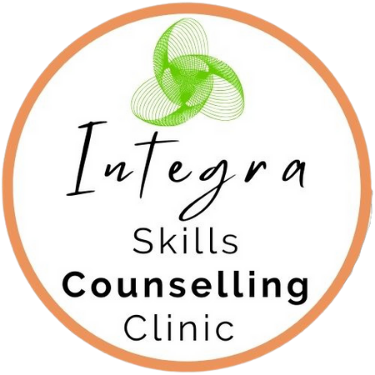As a parent, recognizing the signs that your teen may be struggling with an eating disorder can be challenging. Eating disorders are serious mental health conditions that require timely intervention and support. Understanding the signs can be the first step towards getting your teen the help they need. Here, we will explore five common indicators that your teen may have an eating disorder and provide guidance on what you can do to support them.
1. Dramatic Weight Changes
What to Look For:
- Sudden Weight Loss: If your teen experiences significant weight loss over a short period, it can be a sign of an eating disorder such as anorexia nervosa. This disorder is characterized by an intense fear of gaining weight and a distorted body image.
- Weight Fluctuations: Teens with bulimia nervosa might maintain a relatively stable weight, but you may notice fluctuations. Bulimia involves cycles of binge eating followed by purging, which can lead to varying weight changes.
- Excessive Focus on Weight: Constantly checking their weight, frequent comments about feeling “fat,” or an obsession with weight loss can be red flags.
How to Help:
- Approach with Sensitivity: Avoid making direct comments about their weight. Instead, express your concern for their overall health and well-being.
- Consult a Professional: Seek advice from a healthcare/mental health professional who specializes in eating disorders. They can provide a comprehensive assessment and recommend appropriate treatment options.
2. Obsessive Food Behaviors
What to Look For:
- Calorie Counting: An excessive focus on calories or other nutritional content is a common behaviour in teens with eating disorders. They might keep detailed food diaries or use apps to track their intake obsessively.
- Restricted Diets: Teens may suddenly adopt strict diets, cutting out entire food groups or eating only “safe” foods that are low in calories.
- Excuses to Skip Meals: Regularly avoiding meals or making excuses not to eat, such as claiming they have already eaten or are not hungry, can be a warning sign.
How to Help:
- Create a Positive Food Environment: Encourage balanced meals and make mealtimes a family affair. Avoid negative discussions about food and weight in general.
- Educate Yourself: Learn about healthy eating habits and the dangers of restrictive diets. Share this knowledge with your teen in a supportive manner.
3. Changes in Eating Habits
What to Look For:
- Secretive Eating: Teens with eating disorders might eat in secret or lie about their eating habits. You may find hidden food wrappers or notice they frequently go to the bathroom after meals.
- Food Rituals: Unusual behaviours around food, such as cutting it into tiny pieces, eating very slowly, or rearranging food on their plate without actually eating much, can indicate an eating disorder.
- Increased Focus on Exercise: Excessive exercise, particularly when it’s driven by a need to burn off calories or compensate for eating, is a significant warning sign. It can interfere with important activities and often occurs at inappropriate times or in inappropriate settings.
How to Help:
- Open Communication: Have open, non-judgmental conversations about their eating habits. Ask questions to understand their feelings and behaviours around food.
- Seek Professional Guidance: A therapist or counsellor specializing in eating disorders can provide valuable support and strategies for both you and your teen.
4. Psychological and Emotional Signs
What to Look For:
- Body Image Preoccupation: An unhealthy preoccupation with body image and appearance is common. Your teen might frequently check themselves in mirrors, compare their body to others, or express dissatisfaction with their appearance.
- Mood Swings: Eating disorders can often co-occur with other mental health issues such as depression and anxiety. You might notice increased irritability, withdrawal from social activities, and a general decline in mood.
- Perfectionism: Many teens with eating disorders have perfectionist tendencies, striving for an unattainable ideal. This can manifest in their eating behaviours and other aspects of their lives, such as academics or sports.
How to Help:
- Promote Healthy Self-Esteem: Encourage activities that build confidence and self-worth unrelated to appearance. Praise their talents, efforts, and character.
- Address Mental Health: If your teen is struggling with mood swings or anxiety, consider seeking help from a mental health professional. Therapy can address underlying issues that may be contributing to the eating disorder.
5. Physical Symptoms
What to Look For:
- Dizziness and Fainting: Malnutrition and dehydration can lead to frequent dizziness, fainting spells, and fatigue. These symptoms can be a result of restrictive eating or purging behaviours.
- Changes in Skin, Hair, and Nails: Look for signs like dry skin, hair loss, brittle nails, or the development of fine hair on the body (a condition known as lanugo, often seen in anorexia nervosa).
- Gastrointestinal Issues: Complaints of stomach pain, constipation, acid reflux, or other digestive problems can be associated with eating disorders.
How to Help:
- Monitor Health: Pay attention to physical symptoms and seek medical advice if you notice concerning changes. Regular check-ups with a healthcare provider can help monitor your teen’s health.
- Support Nutritional Health: Working with a dietitian who specializes in eating disorders can help you to make sure your teen is getting the necessary nutrients. They can provide tailored meal plans and nutritional counselling.
Conclusion
Recognizing the signs of an eating disorder in your teen is the first step towards getting them the help they need. Eating disorders are complex conditions that require a multi-faceted approach to treatment, including medical, nutritional, and psychological support. As a parent, your role in providing a supportive and understanding environment is crucial.
If you suspect your teen has an eating disorder, don’t hesitate to seek professional help. Early intervention can significantly improve the chances of recovery and help your teen develop healthier relationships with food and their bodies. Remember, your support and understanding can make a world of difference in your teen’s journey towards recovery.

